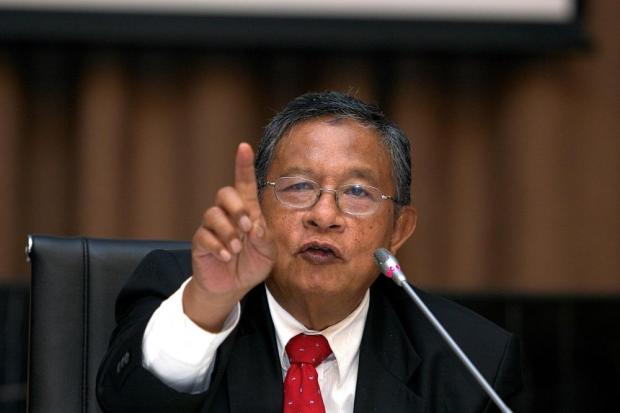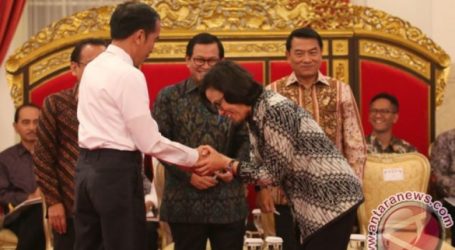Indonesia Launches New Economic Stimulus Measures

Jakarta, MINA — Indonesia announced on Friday (Nov 16) a new economic stimulus package to support the rupiah and spur growth, in the lead up to the presidential election in April 2019.
The country’s ailing economy has emerged as a critical issue for President Joko Widodo’s administration two months into campaigning.
On Thursday, challenger Prabowo Subianto announced he will slash corporate and personal income taxes if he comes to power, part of a plan to lure more investment to South-east Asia’s biggest economy.
The stimulus package announced by the government include, among other things, tax cuts from next year for exporters of commodities in the mining, plantation, forestry and fishery sectors who keep their export revenues in the domestic banking system.
Finance Minister Sri Mulyani Indrawati, one of several ministers fronting a press conference at the presidential palace on Friday (Nov 16), said that the tax cuts in time deposits will apply to both local and foreign currencies. There will be cuts in income tax as well for exporters.
However, exporters who do not keep their export earnings domestically may be barred from moving their goods overseas.
“Regarding the export revenues, we will impose an administrative sanction by way of banning exports,” she added.
Experts say it is a move to stem capital outflows which has seen the embattled rupiah plunge to its lowest levels since the 1998 Asian Financial Crisis. Mr Joko had met in July with executives from about 40 exporters in Indonesia to also make the case for earnings currently kept offshore to be brought home to help the rupiah.
Mr Satria Sambijantoro, an economist at Bahana Securities, said by keeping export revenues in the country, the foreign exchange reserves can grow, which will help mitigate capital outflows from Indonesia in the future.
“In the end, foreign exchange liquidity in domestic banks will remain ample at times of external shocks,” he told The Straits Times.
To attract foreign investments, the stimulus package will provide for a tax holiday for two industrial sectors – agriculture-based manufacturing and digital industry – as well as allow for a relaxation of the country’s Negative Investment List for some priority sectors, such as textile printing and weaving, said Industry Minister Airlangga Hartarto at the same press conference.
The list specifies sectors which are either entirely closed or conditionally open to foreign investment, including oil and gas, trading, pharmaceuticals and transportation.
With the change, foreign ownership in 54 business sectors, including the steel, chemical and petrochemical industries can now be 100 per cent, up from the present 30 per cent to 67 per cent.
Coordinating Economic Minister Darmin Nasution said: “We cannot address current account (deficit) issue only. That’s important, but not enough. We must formulate policies to give investors confidence and allow capital inflows.”
The economic stimulus package follows similar moves made since 2015 to make it easier for investors to do business in the country and spur growth.
It also complements the last stimulus package introduced in August last year with a goal to encourage more foreign investment.
Among other things, the measures introduced in 2017 provided for an integrated business permit system that enables investors to submit online all necessary documents for an investment licence, instead of having to do it through multiple government departments.
All this against the backdrop of a worsening external economic situation that has seen Indonesia struggle to meet Mr Joko’s 7 per cent growth target.
Struggling to manage fluctuating currency
The central bank anticipates the economy will expand by 5.1 per cent this year, compared to last year’s 5.07 percent. The government said in August economic growth will be 5.18 per cent this year.
Indonesia has been struggling to manage its fluctuating currency as investors lose confidence in the emerging economy amid developments in the global economy.
Centre of Reform on Economics Indonesia executive director Mohammad Faisal said that with United States intensifying efforts to boost its economy, including adopting a hawkish monetary stance, capital has been sucked out of emerging economies like Indonesia.
“All emerging markets are affected by shocks from the US, but our currency depreciation is among the deepest,” he said, pointing out that the country’s unhealthy current account deficit has been a major trigger.
The rupiah has been on an upward trend since early November on the back of faster-than-expected growth in the third quarter and better external outlook.
It traded at 14,611 rupiah per US dollar at the foreign exchange spot market on Friday’s closing session versus 14,665 a day earlier, according to data compiled by Bloomberg. (T/RS5/RS1)
Mi’raj Islamic News Agency (MINA)




